Netflix’s Dave Chappelle PR crisis has been years in the making
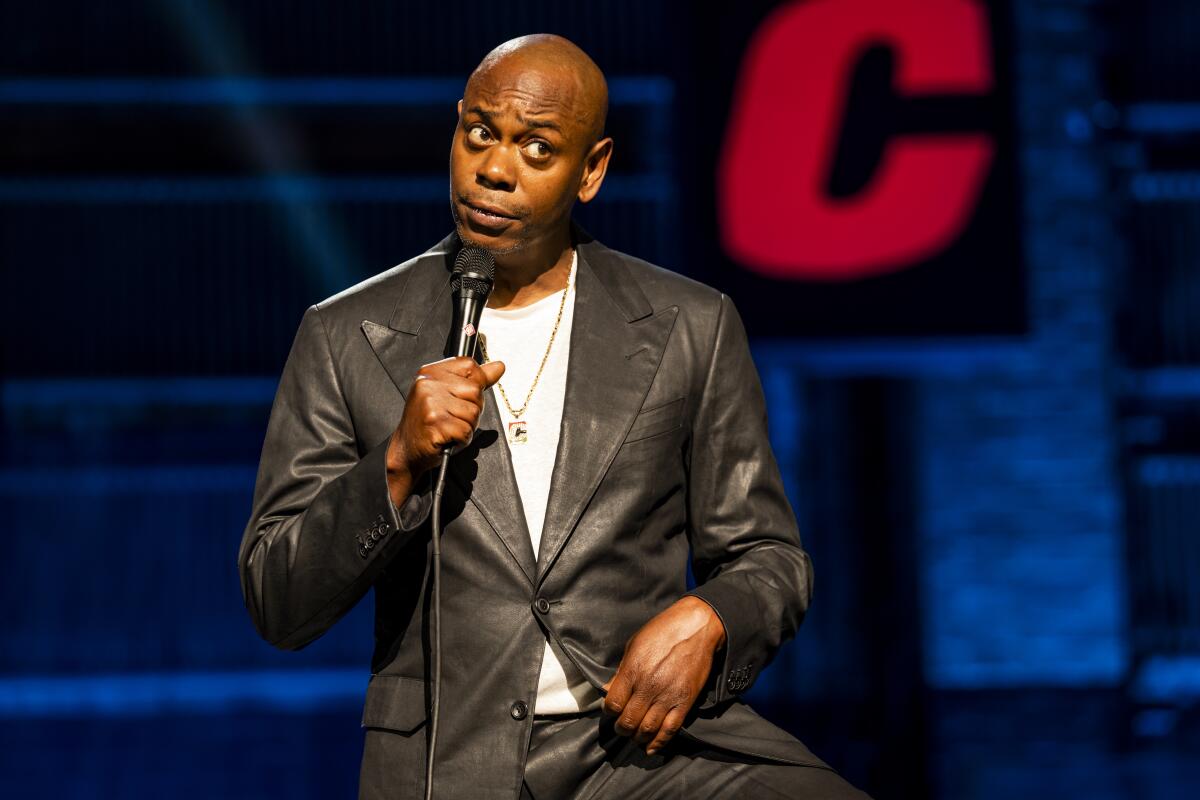
Welcome to Screen Gab, the newsletter for everyone who wants a side of queer history with their pop culture controversies.
Since it premiered on Oct. 5, Dave Chappelle’s new Netflix special, “The Closer” — in which the comedian defends J.K. Rowling and DaBaby, pits Black against LGBTQ civil rights and employs hoary “humor” about trans people’s genitals — has sparked an ever-widening firestorm.
The situation reached a head this week, with not one but two internal memos from co-CEO Ted Sarandos defending the company’s collaboration with Chappelle; condemnation from GLAAD about both “The Closer” and Netflix’s response to the controversy; and an announcement that employees of the streamer will stage a walkout Oct. 20 to pressure the company to acknowledge the harm done by the special.
For his part, Chappelle seems to be relishing the attention, reportedly saying, “If this is what being canceled is like, I love it,” during a recent appearance at the Hollywood Bowl.
Sarandos emphasized the company’s support for “creative freedom” and downplayed the potential damage wrought by Chappelle’s remarks: “We have a strong belief that content on screen doesn’t directly translate to real-world harm,” Sarandos wrote.
The implication is that the theoretical harm caused by refusing Chappelle the largest megaphone in streaming outweighs the actual harm that biphobic, homophobic and transphobic rhetoric causes LGBTQ people and the LGBTQ community — even though 2020 was “the deadliest year on record” for transgender and gender-nonconforming people, according to Human Rights Campaign. (That anti-LGBTQ prejudice remains a live issue in our society was underscored further this week by Jon Gruden, Dean Cain and Tucker Carlson.)
The right to free expression, of course, is shared by those who’ve turned a “sticky” stand-up act into a “hard, uncomfortable” situation, to use Sarandos’ words. As Steven Capsuto writes in “Alternate Channels,” his definitive history of LGBTQ TV in the 20th century, LGBTQ activism designed to upset those in power is inextricable from the history of queer representation on screen. Journalist Mark Segal “zapped” Walter Cronkite on the “CBS Evening News.” Protesters disrupted production on William Friedkin’s “Cruising” with whistles and air horns. GLAAD was founded in 1985 to centralize pressure campaigns on networks and sponsors.
Even the involvement of Netflix staffers — whether through public criticism, internal organizing or use of the company’s queer Twitter account — calls to mind an earlier era in Hollywood history: after the Stonewall uprising galvanized the gay rights movement, queer workers regularly leaked problematic scripts to outside activists to spur protest actions.
The controversy over “The Closer” isn’t an example of “cancel culture.” It’s an expression of culture, full stop. Without the generations-long fight against demeaning or stereotypical depictions of LGBTQ people, Netflix would not have “Orange Is the New Black,” Hannah Gadsby’s “Nanette” or “Disclosure” to crow about when Chappelle or Ricky Gervais, “Money Heist” or “Tiger King,” ignites a backlash. The streamer’s ascendance means facing the contemporary equivalent of the pickets and boycott threats that once faced broadcasters: the expectation that one’s subscription dollars will not be used to pay for dehumanizing language about trans people.
What’s happening to Netflix and Dave Chappelle isn’t new. LGBTQ people have been demanding better of the medium’s most powerful institutions since before Netflix existed — and will, one can safely assume, well after it’s gone. The concerns are largely the same; so are the tactics. The only difference is the target.
The complete guide to home viewing
Get Screen Gab for everything about the TV shows and streaming movies everyone’s talking about.
You may occasionally receive promotional content from the Los Angeles Times.
ICYMI
Must-read stories you might have missed
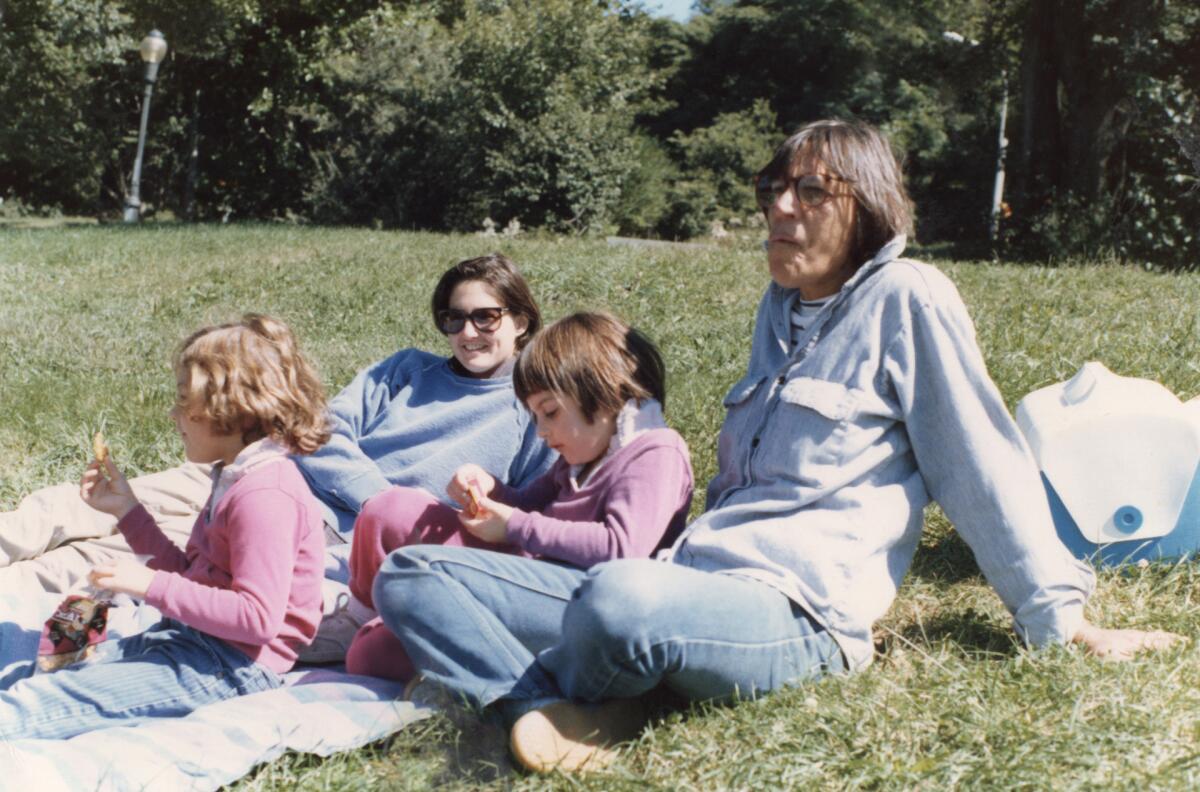
Hollywood crews say they will strike next week if there is no agreement: Ratcheting up pressure on the major studios, the union representing Hollywood crews announced Wednesday that its members will go on strike on Monday if they can’t reach agreement on a new contract.
How one family weathered the ‘terrifying’ spotlight of an HBO documentary: “Nuclear Family” shines an intensely personal and often uncomfortable spotlight on a landmark case for LGBTQ parental rights.
‘We could be implicated’: How scandal consumed ‘The Real Housewives of Beverly Hills’: Cast members Garcelle Beauvais, Crystal Kung Minkoff and Sutton Stracke open up about Erika Jayne Girardi, discussing race on reality TV and stocking up on leather pants.
It was ‘crystal clear’ showbiz wanted Billy Crudup for his looks. He had other ideas: Early in his career, a dispiriting meeting left ‘The Morning Show’ star ‘cautious’ about fame. Now he’s learning how to let down his guard.
Turn on
Streaming recommendations from the film and TV experts at The Times
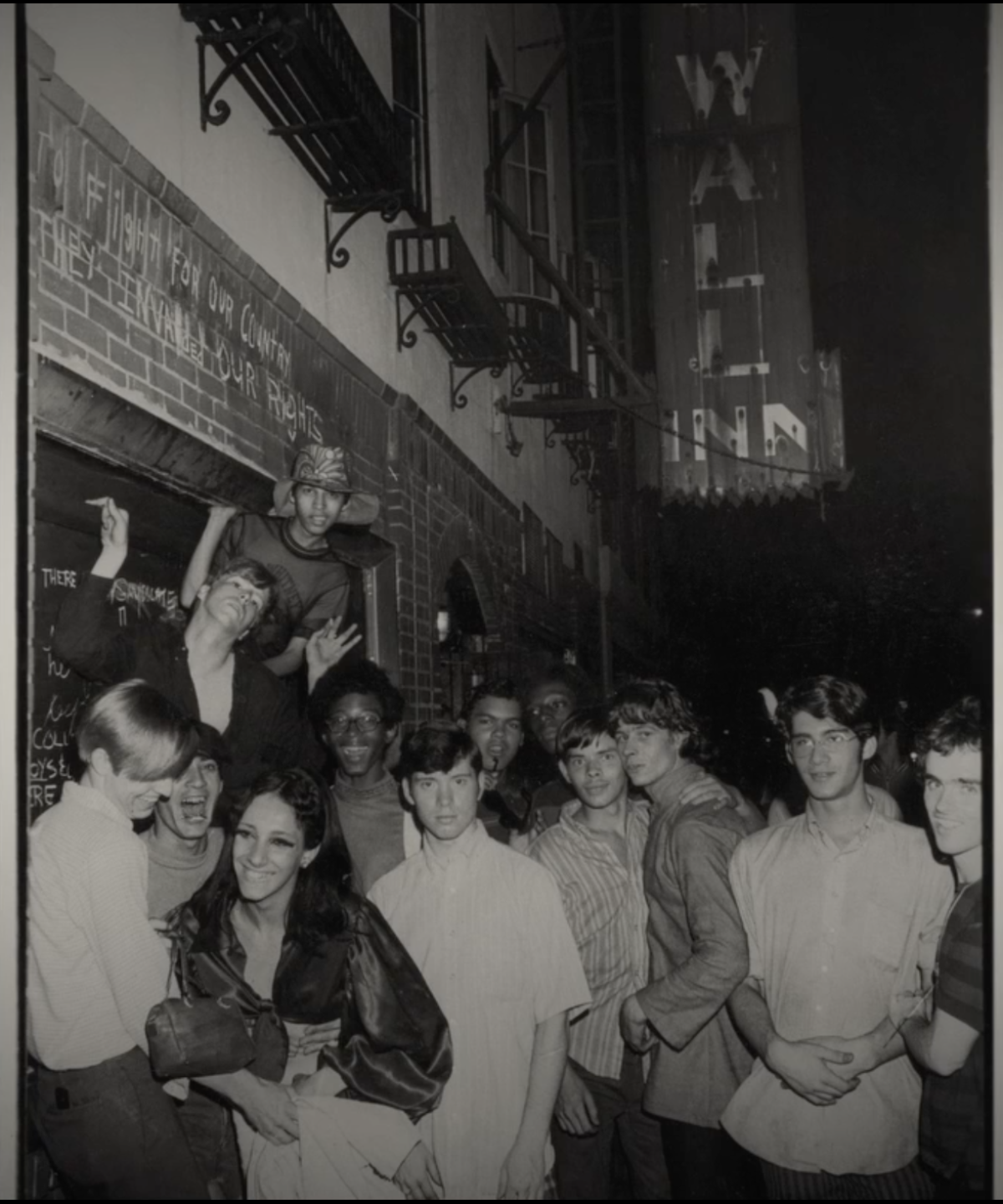
If there ever was a week to watch “Disclosure” (Netflix), a documentary examining the history of transgender (mis)representation in Hollywood, it’s this one. Directed by Sam Feder, “Disclosure” takes an in-depth look at how Hollywood has depicted trans and gender-nonconforming people since its earliest films — often as deceitful, degenerate villains or uncomfortable punchlines — and its impact on the trans community. Trans actors, filmmakers, activists and scholars get personal about high and low points of onscreen representation and how it has affected the way they see themselves, while also drawing explicit connections between these depictions and real-world transphobic violence. “Disclosure” makes clear that representation and visibility aren’t the endgame — they are the means to shift attitudes to create a more just and understanding world. It’s essential viewing for everyone, particularly if you want to understand the uproar over Dave Chappelle’s “The Closer.” Maybe if enough people tune in, it will influence Netflix’s algorithm enough for a certain co-CEO to notice. —Tracy Brown
“Artbound: Rubén Guevara: Con Safos” (KCET, KDOC, PBS app). KCET, L.A.’s PBS flagship station, has had its institutional ups and downs over the years, but the wonderful, locally focused series “Artbound” argues for its creative health. The first episode of the 12th season focuses on the personable Guevara, lately known as Rubén Funkahuatl Guevara: pop musician, performance artist, video artist, activist, community inspiration, elder statesman and self-described “Chicano culture sculptor.” Guevara’s career, which might easily be described as a personal journey or a flavorful stew, took him from indie doo-wop to “Shindig!” — where he was known, to his displeasure, as Jay P. Mobey — to Ruben and the Jets, a real band spun off from a Frank Zappa concept album, to Cheech and Chong movies, to galleries and art spaces. It’s all wrapped up in a search for personable identity and a mission to mediate an ongoing, not always easy dialogue between Mexican and Mexican American culture. Lively and inspiring. —Robert Lloyd
Catch up
Everything you need to know about the film or TV series everyone’s talking about
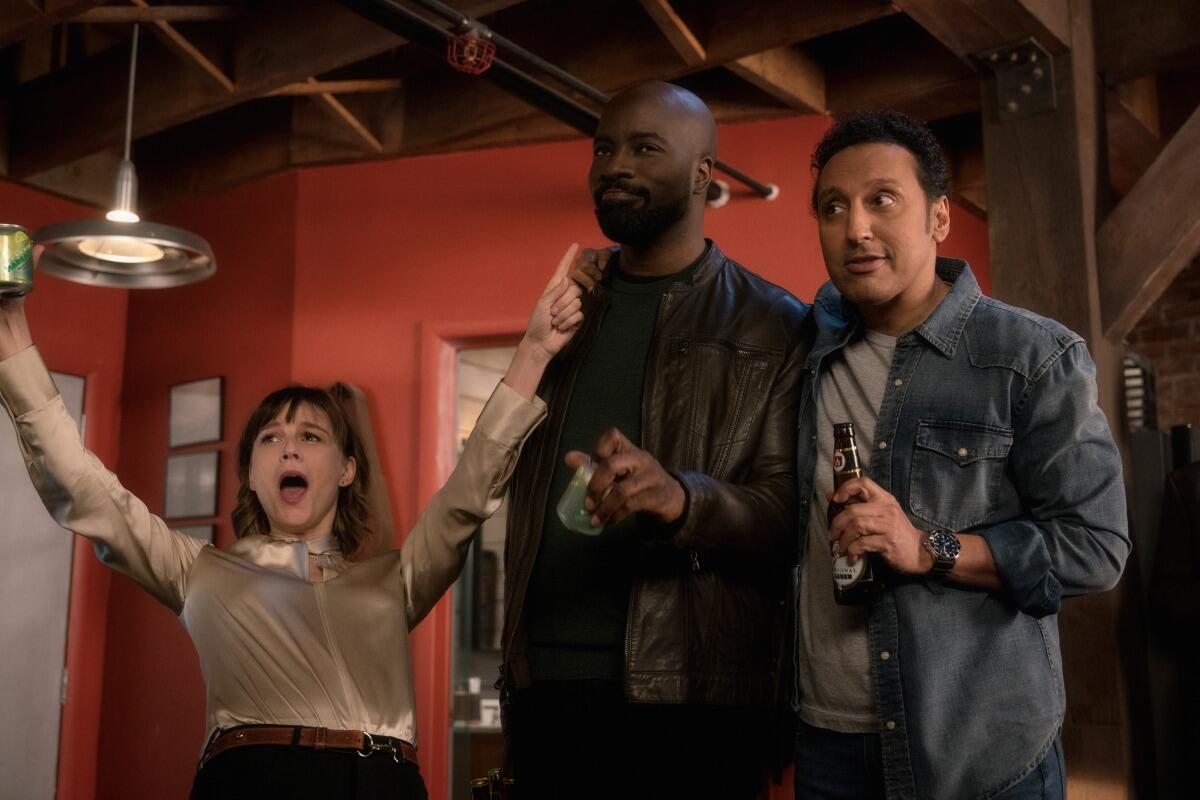
From Robert and Michelle King, the husband/wife team behind “The Good Wife” and “The Good Fight,” comes another madcap genre experiment running laps around the competition: “Evil” (Paramount+), an exorcism-of-the-week procedural in which a psychologist (Katja Herbers), a priest-in-training (Mike Colter) and a tech expert (Aasif Mandvi) team up to investigate potential supernatural phenomena.
That might sound like the setup of a terrible dad joke, but the series, now in its second season, is as light-footed as the Kings’ legal dramas, combining irreverent humor with enough chills to give “Hannibal” a run for its money. The performances are excellent: Colter invests David Acosta, his Catholic devout, with rich ambivalence about the church’s earthly shortcomings; Herbers is heartbreakingly convincing as Dr. Kristen Bouchard, a mother of four whose commitment to rationality is tested by the depth of her fears. (Bonus points for casting Andrea Martin as a no-bull nun and Christine Lahti as Herbers’ free-spirited mother.)
Still, “Evil’s” greatest strength is one it shares with “The Good Fight” — a remarkably deft touch with topicality. Thanks to the built-in excesses that come with sending its characters to root out demonic possessions and confirm saintly miracles, the series takes on medical racism, police violence and working conditions at an Amazon-esque online retailer without reducing complex subjects to mere talking points. With 26 episodes in the can, and a Season 3 order already secured, it’s the perfect spooky season binge.
Your show wishes it were this radical. —Matt Brennan
Guest spot
A weekly chat with actors, writers, directors and more about what they’re working on — and what they’re watching
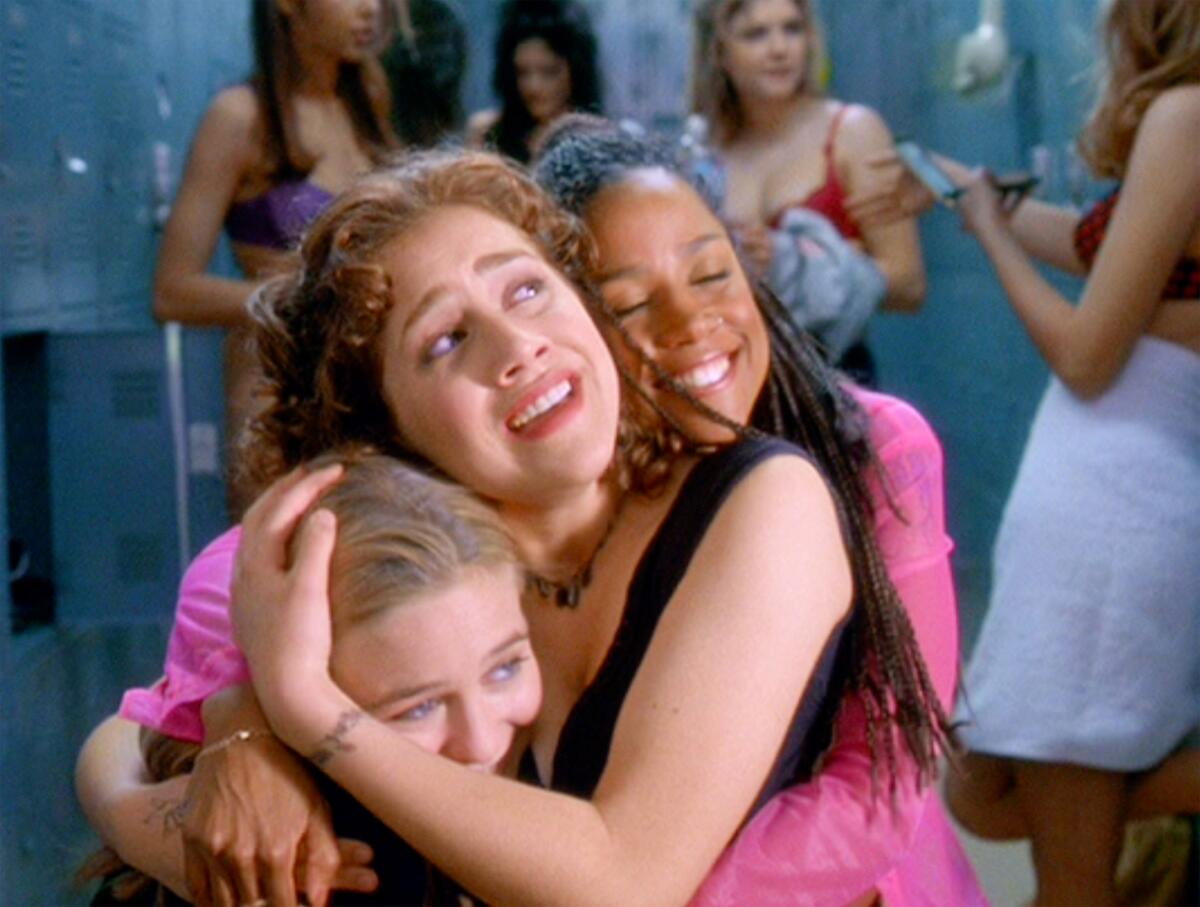
“What Happened, Brittany Murphy?” a new HBO Max docuseries about the “Clueless” star, who died suddenly 12 years ago, has received mostly savage reviews. Critics argue that the two-part program is exploitative: It opens with a voyeuristic 911 call, uses actors to re-create the crime scene of Murphy’s death and features the opinions of YouTube vloggers who never knew her. Senior writer Amy Kaufman asked the program’s director, Cynthia Hill, to explain some of these creative choices.
Why did you opt to film re-creations of Murphy’s lifeless body?
That’s hard for me. I’m not necessarily the biggest fan of re-creations. But there sometimes becomes a need for visuals. I would love to have more time. I would love to get better at that kind of thing. Yeah, I’m gonna say something wrong here in a second.
It sounds like you didn’t want to include them but were asked to?
I’m not saying it. But there is an expectation that those things are needed. But yeah, let me move on before I step in a bunch of s—.
Were you conscious of what Brittany Murphy would think of the project were she alive?
For sure. And that weighed heavily. How do you give her a voice when she is not present, she’s not with us? That was one of the main reasons we wanted to use her in her films, to help give her voice to narrate her own life. Obviously, I don’t really know if that’s how she would think about things or not, so it is an interpretation. But I felt like it was important for her to have some agency in this story.
Some have argued that these types of projects are exploitative — like the recent FX on Hulu and Netflix documentaries about Britney Spears, who did not participate in the films.
I felt with everything that has transpired and all of the chatter about her death and the mystery, I wanted the opportunity for her to shine on her own. For her talent and her as a person to be present. It was a delicate balance of servicing the needs of making content that is in this crime doc genre but also trying to make something that honors this woman who is no longer with us.
Why are we only now reexamining our relationship to these young stars?
I think we’re all looking back in the rearview mirror and trying to understand why we allowed those things to happen. Us participating in that as an audience — what’s our culpability in that? I think that our fascination with train wrecks, that’s really disturbing. Why do we do this rubbernecking thing? We all have to look at our own issues and consumption of that kind of content. ... [Brittany] definitely was gobbled up by Hollywood and the expectations, the standards, that world.
Break down
Times staffers chew on the pop culture of the moment — love it, hate it or somewhere in between
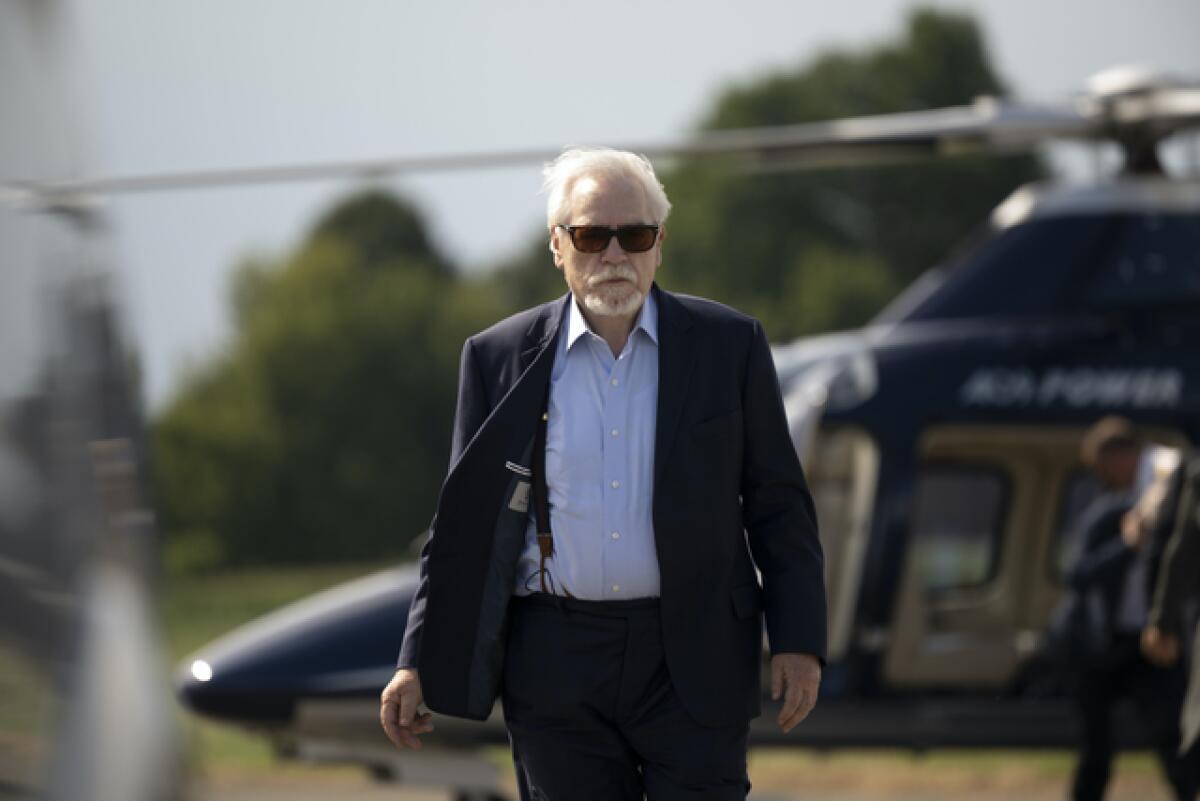
It’s been two long, agonizing years since Season 2 of “Succession” (HBO) concluded with a cliffhanger for the ages. If you’ve been too busy collecting Napoleon artifacts to rewatch and can’t remember where last we left things with the Roy family, here’s a refresher as we brace for the show’s return Sunday night.
Logan: After disastrous Senate hearings about widespread abuse within the cruise division, the Roy family patriarch faces shareholder pressure to step down from his post as CEO of Waystar Royco. Instead, after much debate, he taps Kendall as the “blood sacrifice,” telling his son he isn’t enough of a “killer” to lead the company. Aboard his yacht somewhere in the Greek Isles, he watches on TV as Kendall publicly betrays him at a press conference in New York. Is that a smile on his face?
Kendall: Still feeling guilty about that waiter he accidentally killed at Shiv’s wedding, Kendall at first seems resigned to becoming the company’s public scapegoat. Instead, he flies back to New York, goes on TV and blasts his father as a “malignant presence, a bully and a liar” who was aware of the widespread abuses in the cruise division — and was involved in the cover-up.
Roman: A shaken Roman returns from Turkey after surviving a harrowing hostage ordeal while trying to broker a deal with Eduard Asgarov. He defends his pseudo love-interest Gerri when it’s suggested she become the blood sacrifice, rightly arguing that it would be a bad idea to make a high-ranking woman take the fall. Logan appoints him sole COO of Waystar Royco, much to Shiv’s dismay.
Tom: Upset by Shiv’s proposed threesome and the case she makes that his poor performance at the Senate hearing and handling of documents related to the scandal makes him an obvious choice as blood sacrifice, Tom confronts his wife about their relationship. “I wonder if the sad I’d be without you would be less than the sad I get being with you,” he says, shortly before stealing Logan’s chicken.
Shiv: After her beachside conversation with Tom, she goes to Logan and begs him to save Tom on her behalf. He appears disappointed in her softheartedness.
Greg: Though it’s suggested that the public scapegoat should be sweetened with a topping of “Greg Sprinkles,” the Roys’ dopey cousin lives to see another day, accompanying Kendall on his trip back to New York.
Gerri: She is quickly ruled out as the blood sacrifice, because “no one is more loyal than Gerri.”
Connor: Having spent a fortune underwriting his vanity presidential campaign and Willa’s play, “Sands,” which opens to disastrous reviews, Logan’s eldest son and “first pancake” goes to his father to ask for “some help with reviews” and a “little hundred mill” to keep him afloat. Logan doesn’t bite: “Everyone thinks you’re a joke,” he says.
Marcia: Last seen in Scotland, where she confronted Rhea about her affair with Logan — “Are you regularly tested for sexually transmitted diseases?” — and walked out on the gala celebrating Logan’s 50 years at Waystar. Logan later tells Kendall he misses her. Awwwwww. —Meredith Blake
What’s next
The TV shows and streaming movies to keep an eye on in the coming week
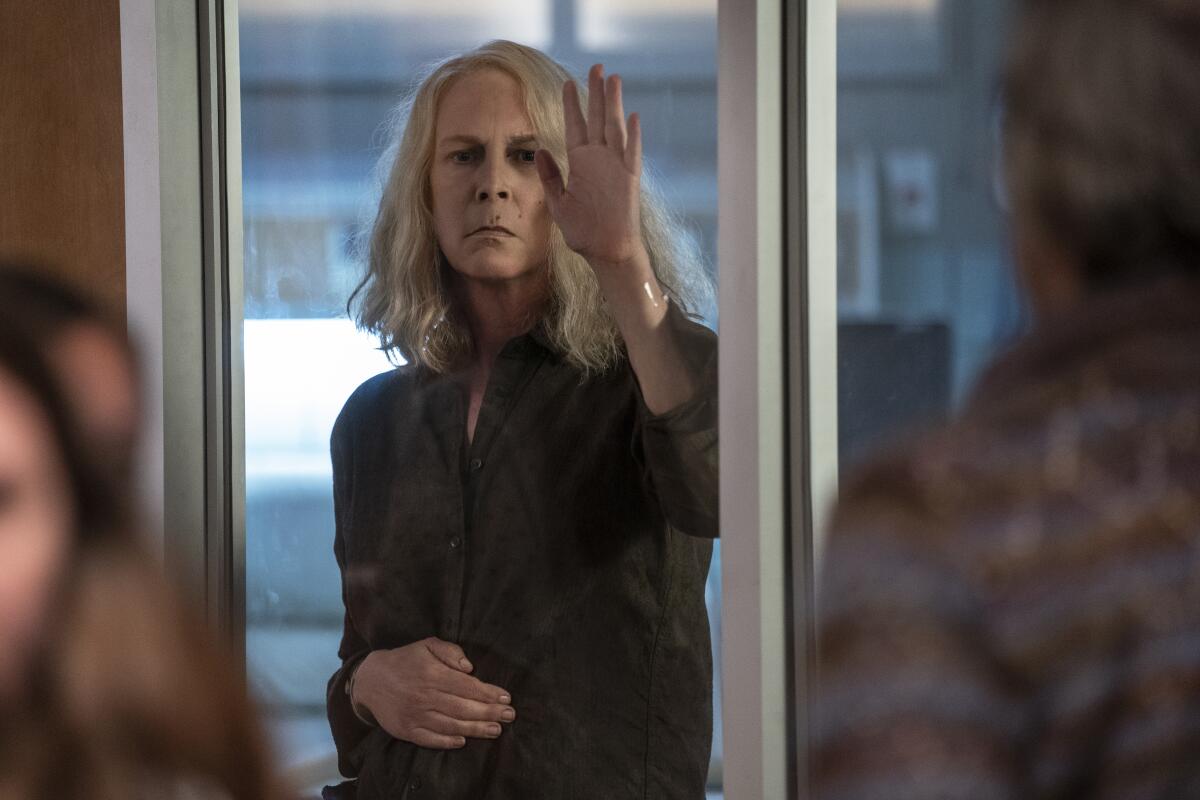
Fri., Oct. 15
“Day of the Dead” (Syfy). Nothing to do with the George Romero film, though an “inspired by” credit gets the late director’s name on the posters.
“Halloween Kills” (Peacock). Jamie Lee Curtis takes on Mike Myers — what’s that? Oh, sorry, Michael Myers — in whatever number sequel this is to the John Carpenter original. (Would watch that other Myers movie, though.)
“I Know What You Did Last Summer” (Amazon). Went nowhere, saw no one, did nothing. This series, on the other hand, reanimates another old horror flick for a new generation.
“The Velvet Underground” (Apple TV+). Todd Haynes’ style-forward documentary on the band that launched a thousand bands, belatedly.
Sun., Oct. 17
“Baptiste” (PBS). Hungary-set second season for this intriguing spinoff from “The Missing,” centered on Tchéky Karyo’s insufficiently retired French detective.
“Hightown” (Starz). Drugs and crime and moral ambiguity in Old Cape Cod. Season 2.
“Succession” (HBO). “Goodnight, Logan.” “Good night, Roman.” “Goodnight, Shiv.” “Goodnight, Connor.” “Goodnight, Tom.” “Good night, Greg.” “Goodnight, Logan…..”
Mon., Oct. 18
“Wakefield” (Showtime). Australian import set in a psychiatric hospital. Advertised as “comedic.”
Tues., Oct. 19
“The Bachelorette” (ABC). A woman attempts to pick a husband from a group of strangers.
“Queens” (ABC) 1990s hip-hop girl group tries to recapture the magic. Eve, Brandy, Naturi Naughton, Nadine Velazquez.
Wed., Oct. 20
“Four Hours at the Capitol” (HBO). The week’s most frightening program, and it’s all real. And not tourism. —Robert Lloyd
Mail bag
Your pop culture questions, answered
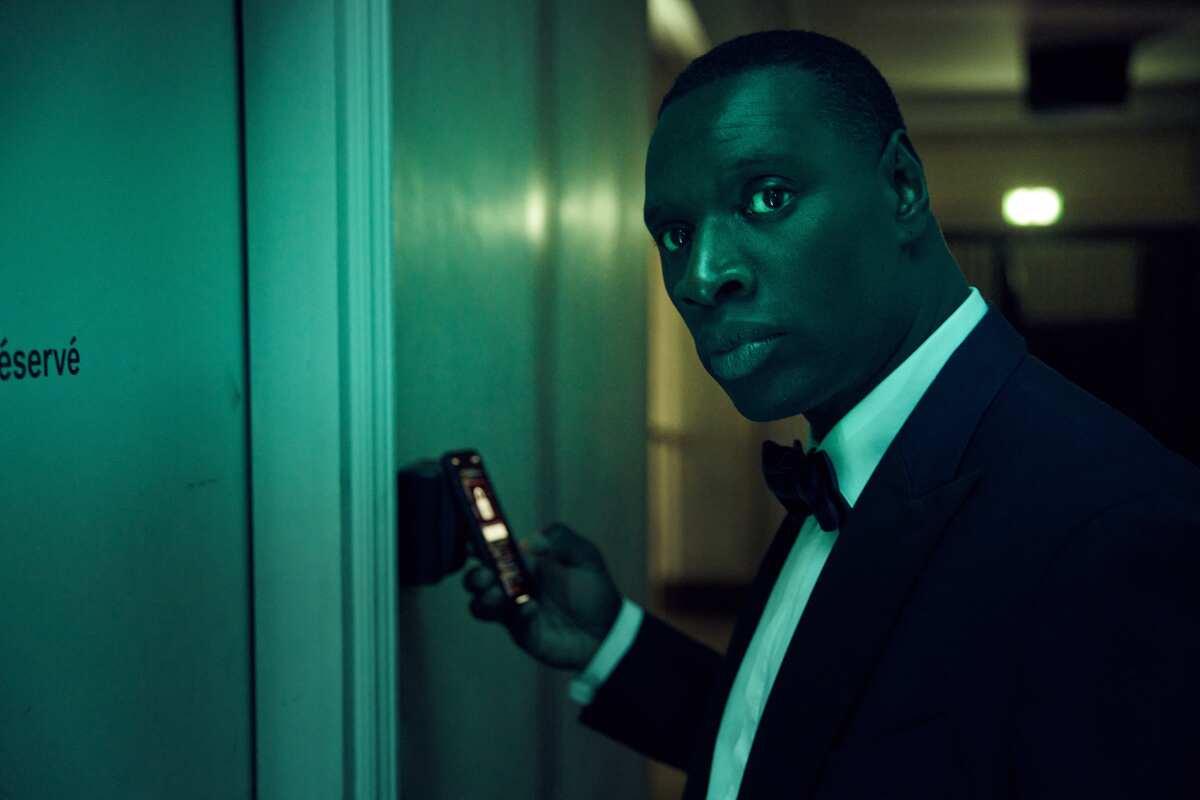
For a “Babylon Berlin” lover, what’s the best thriller on Netflix? I just completed 3 seasons of “Manifest.” Looking forward to Season 4. Liked “Secret City” and “Intelligence.”
—Robert Klein
TV critic Lorraine Ali offers her recommendations:
Robert,
Do I have to pick one?
“Lupin” is a favorite (I’m awaiting its third season, which is slated to arrive next year). The story follows skilled thief Assane Diop, a charismatic master of disguise, heists and subterfuge. His goal is to avenge his father’s death and expose the corruption of the rich and powerful in the stealthiest ways imaginable. He’s the son of a Senegalese immigrant who was framed by a wealthy employer for the theft of a diamond necklace and imprisoned. Assane was orphaned after his father was found hanged in his cell. Revenge is swift and crafty in “Lupin,” a series where immigrants get the job done.
“Money Heist,” which hails from Spain, drops its final season on Dec. 3. More of a twisty crime saga than a political drama, it follows a mysterious mastermind and his team of thieves as they pull off impossible heists in the Royal Mint of Spain and the Bank of Spain. You’ll recognize the team from their red jumpsuits, but there’s no chance of confusing them with the death squads of “Squid Game” thanks to the creepy Salvador Dalí masks.
“The Serpent” is a British drama based on the true crimes of serial killer Charles Sobhraj, who preyed upon young tourists across several continents in the 1970s. In this eight-part limited series, a co-production between BBC One and Netflix, we see Sobhraj’s (Tahar Rahim) progression from a low-level con man to a serial killer. But what’s really interesting is how he leveraged his invisibility as the “brown boy from Third World poverty” to disarm his victims and evade authorities.
Call “Marseille” the French version of “Succession” mixed with “Narcos” and a little “House of Cards” (all shows you should watch if you have not already). The series, which ran for two seasons, is a sweeping tale of corruption, conspiracy, political division, wealth disparity and of course, revenge. It follows the mayor of Marseille (Gerard Depardieu), who after 20 years in office finds himself in a bitter rivalry for power with his former protégé, played by Benoit Magimel. The war between the seasoned politician and his potential usurper affects the entire city, from seedy drug dens to the region’s beloved football club, which makes for a wonderfully complex tale of depravity and redemption.
Cutthroat politics were also a way of life in the late 1600s, when young ruler King Louis XIV (George Blagden) attempted to tame defiant French nobility by moving the court from Paris to the hamlet of Versailles. The plots to overthrow the king didn’t stop, but they did become more clever and Machiavellian. The luscious period drama “Versailles” captures the beauty, opulence and tumult of the Sun King’s early years over three seasons.
—Lorraine
Want to know more about one of the filmmakers we’ve interviewed? Need a new show to binge now that your fave is done for the season? If you have a question about TV or streaming movies for the pop culture obsessives at The Times, send it to us at [email protected] and you may find the answer in next week’s edition.
The biggest entertainment stories
Get our big stories about Hollywood, film, television, music, arts, culture and more right in your inbox as soon as they publish.
You may occasionally receive promotional content from the Los Angeles Times.



